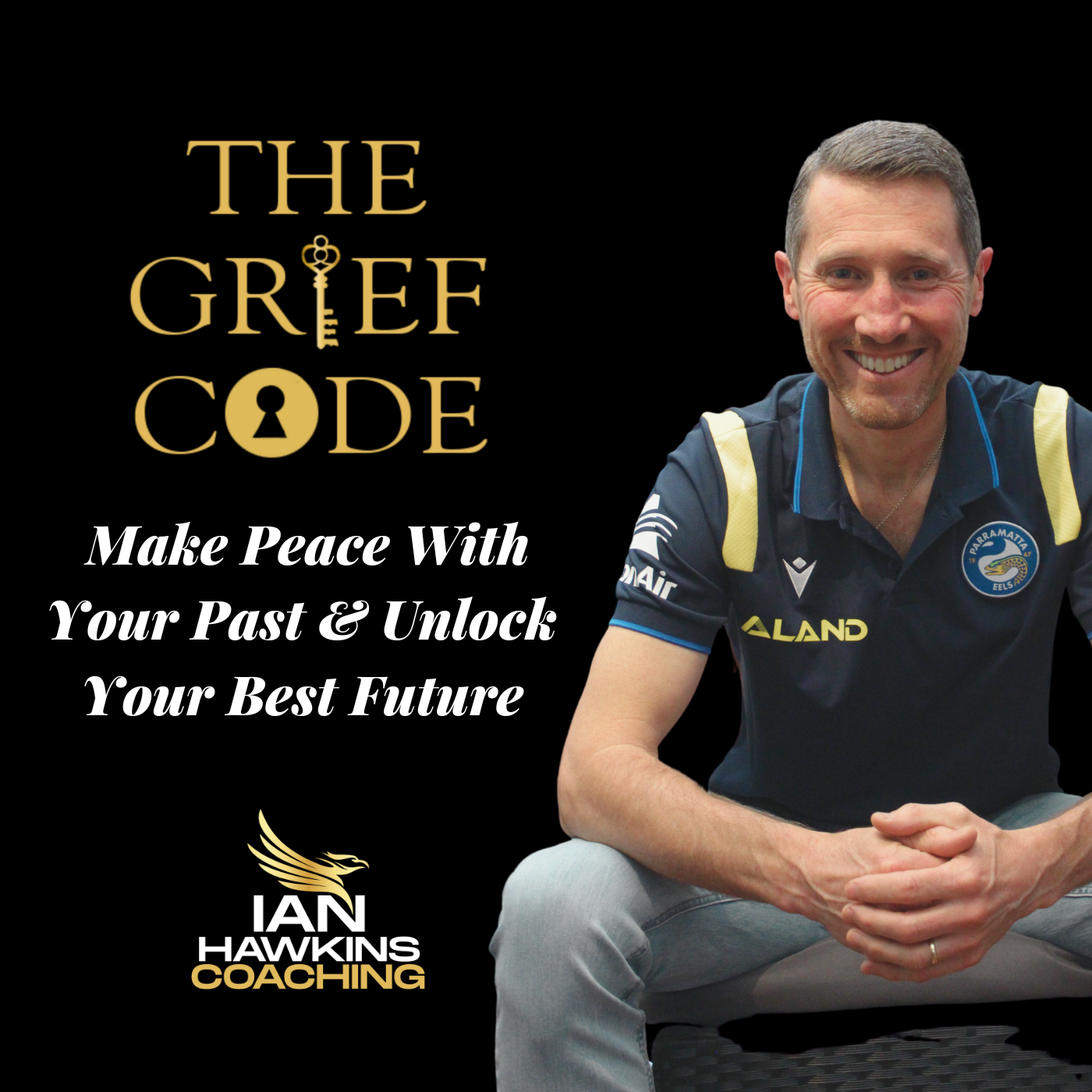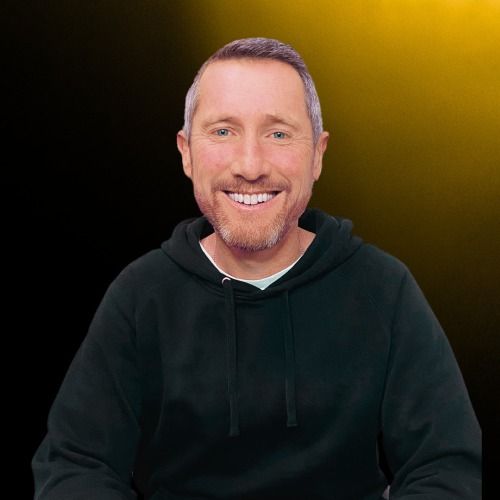Episode 227
Most People Would Rather Die Than Be Wrong
Episode Summary
In this episode, Ian shares his thoughts on how most people would rather die than admit they're wrong. He also talks about the things he learned about healing the body by doing mental, emotional, physical, and spiritual healing.
Don’t miss:
- How often have you not agreed with something that can actually help you?
- Recognizing the learned behavior of conditioning and needing to be right.
- Reflect on the areas in your life at the moment where you are needing to be right.
- Learning to accept that there are people who got some information that's going to prove that what you thought to be right is wrong.
- Acknowledging that it is alright to make mistakes and it is powerful to admit that you can be wrong sometimes as it is a part of the human process of growth.
- Heal your unresolved and unknown grief: https://www.ianhawkinscoaching.com/thegriefcode
About the Host:
Ian Hawkins is the Founder and Host of The Grief Code. Dealing with grief firsthand with the passing of his father back in 2005 planted the seed in Ian to discover what personal freedom and legacy truly are. This experience was the start of his journey to healing the unresolved and unknown grief that was negatively impacting every area of his life. Leaning into his own intuition led him to leave corporate and follow his purpose of creating connections for himself and others.
The Grief Code is a divinely guided process that enables every living person to uncover their unresolved and unknown grief and dramatically change their lives and the lives of those they love. Thousands of people have now moved from loss to light following this exact process.
Check Me Out On:
Join The Grief Code Facebook group: https://www.facebook.com/groups/1184680498220541/
Facebook: https://www.facebook.com/ianhawkinscoaching/
Instagram: https://www.instagram.com/ianhawkinscoaching/
LinkedIn: https://www.linkedin.com/in/ianhawkinscoaching/
Start your healing journey with my FREE Start Program https://www.ianhawkinscoaching.com/thestartprogram
I hope you enjoyed this episode of The Grief Coach podcast, thank you so much for listening.
Please share it with a friend or family member that you know would benefit from hearing it too.
If you are truly ready to heal your unresolved or unknown grief, let's chat. Email me at info@ianhawkinscoaching.com.
You can also stay connected with me by joining The Grief Code community at www.ianhawkinscoaching.com/thegriefcode and remember, so that I can help even more people to heal, please subscribe and leave a review on your favourite podcast platform.
Transcript
Ian Hawkins 0:02
Are you ready, ready to release internal pain to find confidence, clarity and direction for your future, to live a life of meaning, fulfillment and contribution to trust your intuition again, but something's been holding you back, you've come to the right place. Welcome. I'm a Ian Hawkins, the host and founder of The Grief Code podcast. Together, let's heal your unresolved or unknown grief by unlocking your grief code. As you tune into each episode, you will receive insight into your own grief, how to eliminate it, and what to do next. Before we start by one request, if any new insights or awareness land with you during this episode, please send me an email at info at the end Hawkins coaching.com. And let me know what you found. I know the power of this word, I love to hear the impact these conversations have. Okay, let's get into it.
People would rather die than admit they're wrong. They'd rather die to be right. When I first heard that, I was like, really. But the more I think about it, the more I know that to be true. From all that I've learned around healing the body, how much we can change by doing mental healing, emotional healing, spiritual healing. And, of course, elements of physical healing. That it's my belief that that for those who want it, and are ready for there is a cure to everything. Now, you might think that's a bit far fetched, go listen to some of Dr. Joe Dispenza. Rob, this is an actual doctor. He's done the studies and he's put his theories into scientific practice. We had someone come to him who had broken their back and were had been given a diagnosis of life in a wheelchair. And within two months, they were walking. And I've heard so many different stories like that, like that. If you've listened to an early episode with Lisa Warner, she got cancer. And she cured herself from cancer using meditation and some other modalities. And there are countless examples of this, if you prepared to look. But even just that concept of being right? How often have you not agreed with something that can actually help you? Because you don't want to admit to someone that maybe they've got some information that's going to prove what you thought to be right? To not perhaps be right. It's a learned behavior. It's conditioning and needing to be right. We had parents who rarely admitted that they were wrong, if at all, it was the way of the day. And for many, it's still the same. And there's a struggle to admit that. No, I wasn't right. Or as I'm the opposite. I'm like, what I believe now is as good as it is from the knowledge I have at this point. But the moment you give me something that tells up tells me otherwise I haven't experienced it tells me otherwise we'll move on. Because that's where you get the best results. So if you don't agree with something that can help you, you get to be right, you get to stay right but you also get to stay right where you are, or get worse. You can get much worse things you get even worse off than where you're at. So what can you start accepting? That's gonna help you grow dismissing things in a way to stay right. Great, you're right, but at what cost? At what cost to you at what cost to those around you. Because ultimate, ultimately, it's self sabotage. In my experience with people who perhaps aren't ready to do the work on muscle that they need to do. They're happy to continue to go through struggles to show that they're right
then there might be part of them thinking, maybe they're embarrassed to change their mind to admit that they were wrong. But really, like I said earlier about how I look at things, you made the best decision with the information you had at the time. So have a think about the areas in your life at the moment where you are needing to be right. Where you aren't open to different things, or maybe there's part of you that knows that perhaps you're not right. But you're stubbornly sticking to what it is. And if you go through the different elements of your life, have a think about maybe when you're with your partner, or a close friend, or the one that comes to mind even playing golf, the mentality will go, someone gives someone a golf tip on the course and they go, Oh, no, I know what I'm doing wrong. I know what I'm doing wrong. Classic, because mostly when I'm going to clue what they're doing wrong on the golf course. But again, it's that what I need to be right, I need to believe that I'm in control. So, yeah, have a think about that for you. Where are you needing to be right and where is it costing you? And if you keep going down this path of an interview, right, what would ultimately cost you
I hope you enjoyed this episode of The Grief Code podcast. Thank you so much for listening. Please share it with a friend or family member that you know would benefit from hearing it too. If you are truly ready to heal your unresolved or unknown grief, let's chat. Email me at info at Ian Hawkins coaching.com You can also stay connected with me by joining the Grief Code community at Ian Hawkins coaching.com forward slash The Grief Code and remember, so that I can help even more people to heal. Please subscribe and leave a review on your favorite podcast platform

